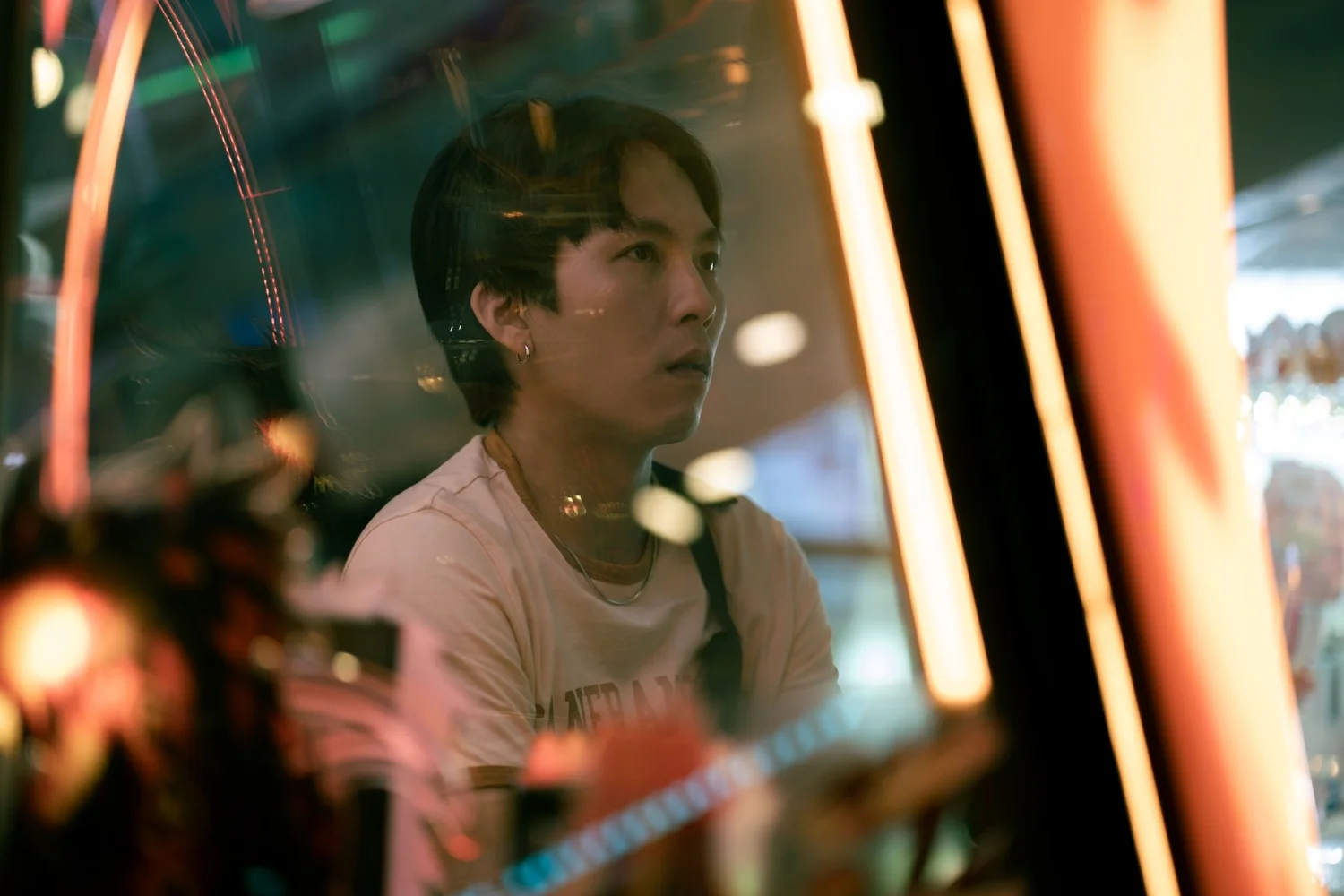Images courtesy of Film Movement
STRANGER EYES— 3 STARS
Missing children are an unsettling movie crisis, often rapt in thriller-sized peril. The helplessness is crippling, even if a happy ending arrives. As well, the fear and uncertainty hit very close to home, even if the viewer is not a parent themselves. More often than not, films about missing or kidnapped children amplify the danger to an exasperating and overwrought level. Stranger Eyes, a main competition entry at the 2024 Venice International Film Festival, encapsulates the aforementioned proliferating dangers in an almost entrancing, methodical way, wholly different from the norm, all due to conflicting background emotions.
Junyang and Peiyang (Golden Bell award winner Wu Chien-ho and Anicca Panna, making her feature debut) are a Singaporean married couple who are introduced watching old videos of them at play with their daughter Bo in a local park. Unlike most folks reminiscing over a display of baby cuteness, the mood is drastically morose. As it stands, it’s been three months since Bo went missing, and this act of watching videos isn’t for a hit of elation. Rather, it’s an assignment from the investigators to try and notice any helpful clues towards the search for the baby or the culprits. Junyang and Peiyang barely acknowledge each other, clearly worn down by the continuing ordeal. Their in-house cheerleader, of sorts, is Junyang’s live-in mother Wu (TV actress Vera Chen), the kind of woman who goes out each day canvassing the neighborhood with photos to ask if anyone has seen her grandchild.
Peiyang rarely leaves their residence, making ends meet and finding cathartic reprieve as a Twitch DJ. Junyang, however, ventures out into the public where Stranger Eyes intently follows him. One day, he follows a mother and baby through several levels and stores in a mall. When the mom is away around an aisle corner for a moment, Junyang stops to pick the baby up—missing that fatherly feeling—as if the baby were his own. Are we watching envy, regret, or some other feeling?
Stranger Ways fleshes out that potential answer with the revelation that Junyang and Peiyang have been being intently watched for years by a middle-aged neighbor across the high-rise courtyard in another building. With dramatic irony, we know his identity when the married couple and lead investigator (actor and recording artist Pete Teo) do not. The person is Lau Wu, played by celebrated Taiwanese actor-filmmaker Lee Kang-sheng. He followed Junyang with a camera at the mall and secretly delivers a pair of DVDs of the voyeur footage to the couple’s home, one of them with their baby from months ago at the park and one of the mall encounter that just happened.
LESSON #1: SUSPECT OR CONCERNED WITNESS?— The entire second act of Stranger Ways shifts radically to Lau Wu’s downcast day-to-day life. He himself is a semi-solitary man living with his ailing, mostly blind mother (Maryanne Ng-Yew). Lau doesn’t appear to be married or a parent. Other than his job at the grocery market, what seems to have consumed his attention is watching Junyang and his family, as stacks of labeled DVDs are seen in his apartment, looking like an orgy of evidence. At this point, every viewer’s red flags point to Lau Wu as the prime suspect. Imagine the sense of presumption and suspicion contained in following someone around and learning their tendencies.
Yet, by walking a mile or two in Lau’s shoes, so to speak, during this stretch of Stranger Eyes, there’s a meekness and an air of concern manifesting more than menace. In a masterful performance from Lee Kang-sheng of considerate restraint bordering on protective altruism from an unseen wellspring in his character’s background, Lau—as wrong as he is watching and invading privacy as he does—shows morality. That disposition lulls the audience to observe, as he does, everyone more closely.
As Stranger Ways tracks Lau Wu, his eyes (and now ours) see a different side of Junyang. He’s brazenly cheating on his wife, and, in one of Lau’s more damning video captures, Junyang is seen on security camera footage coldly leaving an inconsolable Bo in a shopping cart returned to the collection caddy, walking away dejected. In that moment, which seems to last for a sobbing eternity, the film hints that maybe this missing child case has undiscovered internal rather than external suspects and causes.
LESSON #2: WHEN PEOPLE ARE NOT READY TO BE PARENTS— What Lau Wu’s perspective bears out is that Junyang and, by extension, Peiyang were two overmatched people not ready to be parents. He’s seen dispondence, albeit in different forms, from both of them while watching and recording from across the terrace. These, combined with Lau’s own anxieties, are the aforementioned background emotions at play that change everything that would be typical about Stranger Eyes. These dynamics are unspoken and not outwardly expected, revealed only by the film’s prominent angle of voyeurism. The mix of camerawork—from excellent tracking, slow zooms, sharp framing, and dwelling on all sorts of telling body language—is an impressive mask created by cinematographer Hideho Urata (Plan 75).
The soft steps fleshing out these festering feelings, shown over highlighting any feverish sprints of law enforcement to save the day, is a fascinating route taken by writer-director Yeo Siew Hua (A Land Imagined) in Stranger Eyes. The narrative POV switch to Lau downplays the tendency to turn this kind of story into an adrenaline-filled thriller. The voyeurism is very forward and spine-tingling at first, but to see it grow and shed light on the more severe levels of sadness underneath is what is really striking about the film. Somehow, someway, Yeo Siew Hua created a kidnapping drama where finding the actual kid feels comfortably secondary to healing the home the child may return to. There is no extra leap of evil or villainous involvement once this broken core of souls intersects as they do. Instead, pity explored with infinite patience and pause percolates inside this setting of strain.
LOGO DESIGNED BY MEENTS ILLUSTRATED (#1334)



